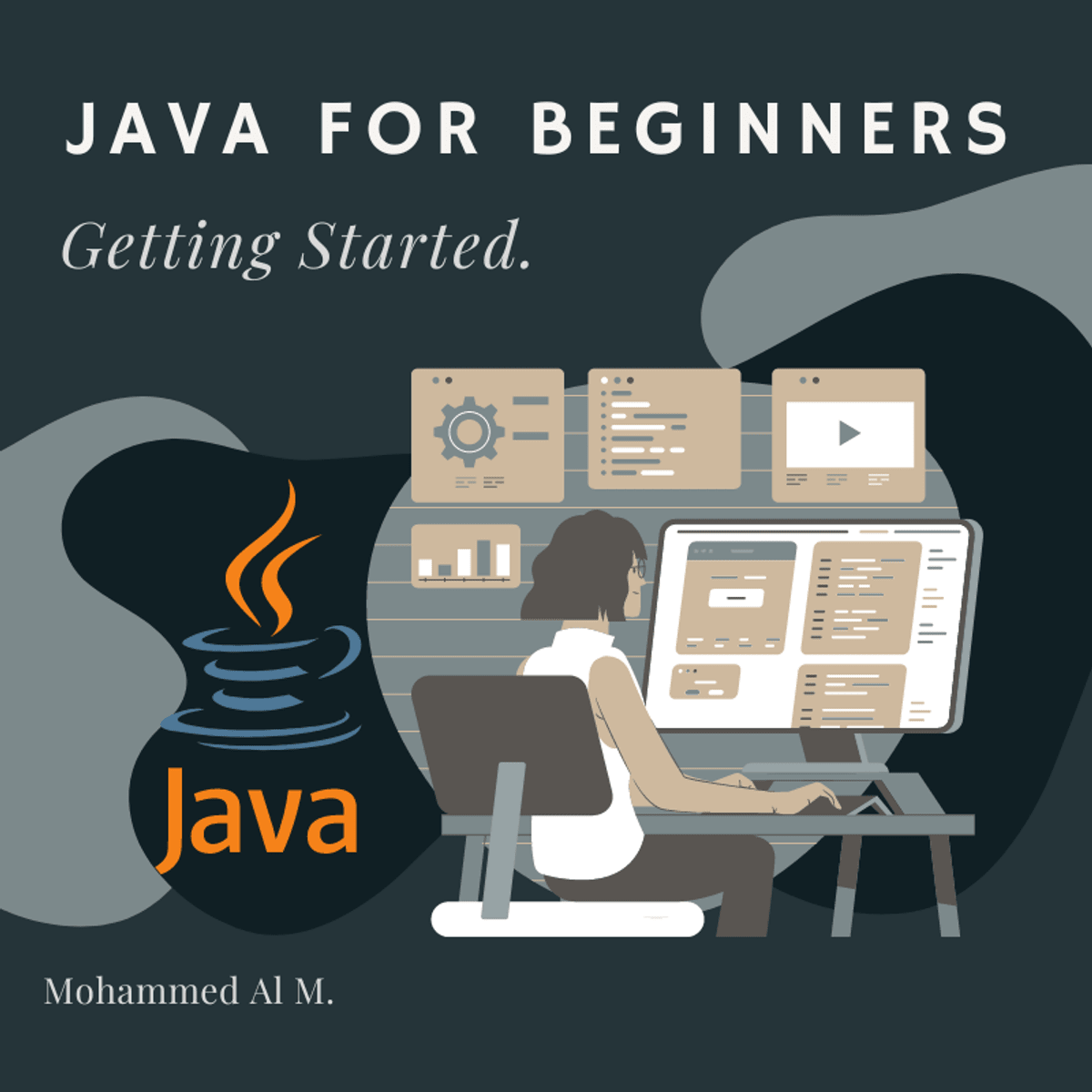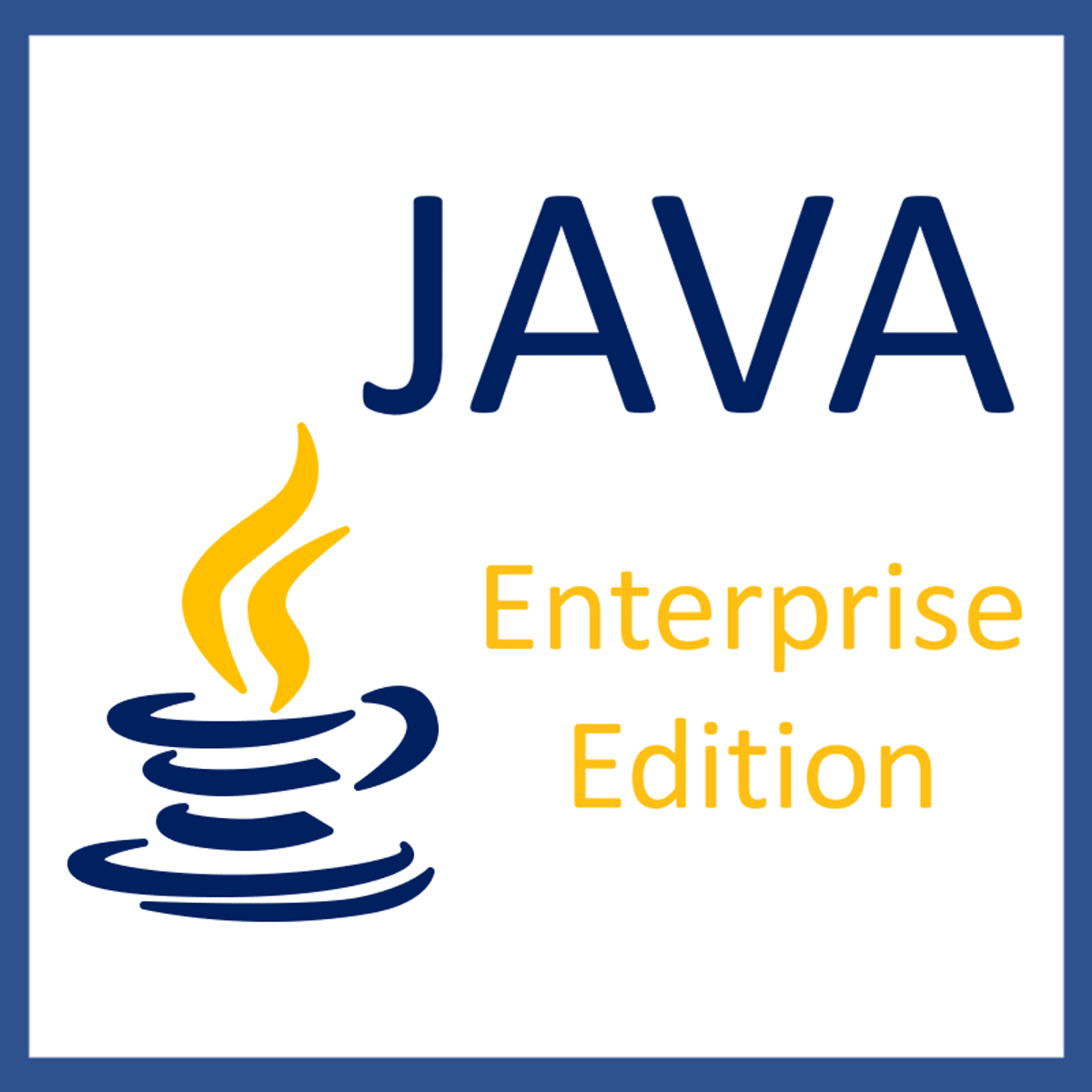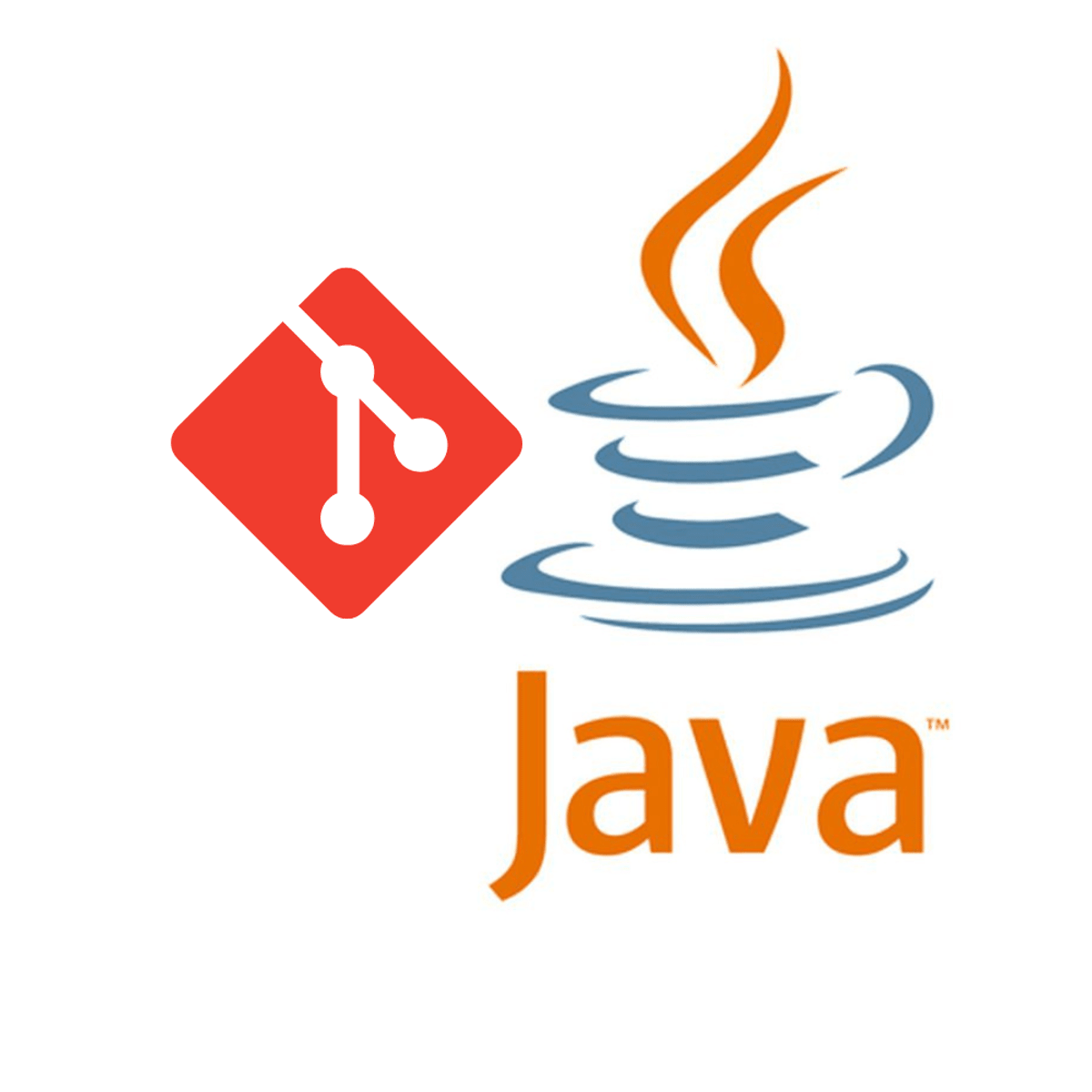Java Developer
e Enduring Path of a Java Developer
A Java Developer is a software engineer who specializes in designing, developing, and managing applications using the Java programming language. This role involves more than just writing code; it encompasses understanding user requirements, participating in the full software development lifecycle (SDLC), and ensuring the performance, security, and reliability of software systems. Java Developers work across various platforms, including web, mobile (especially Android), and large-scale enterprise systems. The versatility and continued evolution of Java, coupled with its strong community and extensive ecosystem of tools and libraries, make being a Java Developer a sought-after and stable career choice.
Working as a Java Developer can be engaging due to the wide array of industries that rely on Java, from finance and e-commerce to healthcare and entertainment. This means developers often have the chance to work on diverse and impactful projects. Furthermore, the collaborative nature of software development means Java Developers frequently work in teams with other engineers, designers, and project managers, fostering a dynamic and interactive work environment.
Introduction to Java Development
For those new to the world of programming, Java can be an excellent starting point. It's a language that has been around since 1995 and remains incredibly relevant in today's technology landscape. If you're considering a career in software development, understanding what a Java Developer does and the environment they work in is crucial.
Overview of Java as a Programming Language and its Ecosystem
Java is an object-oriented, class-based, and concurrent programming language known for its "write once, run anywhere" capability. This means that Java code can run on any device that supports the Java Virtual Machine (JVM) without needing to be recompiled. This platform independence is a significant reason for Java's widespread adoption. The Java ecosystem is vast, encompassing a rich set of Application Programming Interfaces (APIs), development tools like Integrated Development Environments (IDEs) such as IntelliJ IDEA, Eclipse, and NetBeans, and numerous frameworks and libraries that simplify and accelerate the development process.
For individuals embarking on their Java learning journey, understanding these fundamental aspects is the first step. Online courses can provide a structured path to grasp these concepts effectively.
These courses offer a solid introduction to Java and its core principles, suitable for those with little to no prior programming experience.
To supplement your learning, consider exploring introductory books on Java that break down complex topics into understandable segments.
Key Industries and Applications of Java
Java's versatility makes it a popular choice across a multitude of industries. In the finance sector, Java is extensively used for building secure and responsive banking applications, trading platforms, and insurance systems. E-commerce giants rely on Java for their robust and scalable online platforms. The healthcare industry utilizes Java for patient management systems, diagnostic tools, and even for software in wearable medical devices. Other significant sectors include manufacturing, government, education, logistics, and entertainment, with companies like Netflix and Spotify using Java extensively for their streaming services. Java is also a cornerstone for Android mobile app development.
Java's applications are diverse, ranging from large-scale enterprise software and web applications to mobile apps and systems for the Internet of Things (IoT) and Big Data. Its ability to handle massive loads and provide critical functionalities makes it suitable for enterprise-level operations. Many prominent companies like Google, Microsoft, and Amazon utilize Java in various capacities.
For those looking to understand how Java is applied in enterprise settings, these resources offer valuable insights.
Role of a Java Developer in Software Development Lifecycles
A Java Developer plays an integral role throughout the entire Software Development Lifecycle (SDLC). Their responsibilities typically begin with analyzing user requirements and translating them into technical specifications. They are then involved in designing, coding, and implementing Java-based applications. Testing and debugging are crucial parts of their job to ensure the software is functional, reliable, and performs optimally. Java Developers also contribute to maintaining and updating existing applications, proposing improvements, and producing documentation. They often collaborate with other team members, including other developers, software engineers, designers, and project managers.
Understanding the SDLC and the Java Developer's place within it is essential. Many online courses cover these aspects as part of a comprehensive Java education.
These courses delve into software design principles and the practical aspects of building Java applications, which inherently involve understanding the SDLC.
Core Technical Skills for Java Developers
To excel as a Java Developer, a strong foundation in several core technical skills is paramount. These skills are not just about knowing the language itself but also understanding the broader technological landscape in which Java applications operate. Employers consistently seek candidates who demonstrate proficiency in these areas.
Proficiency in Java SE and Java EE Frameworks
A deep understanding of Java Standard Edition (Java SE) is fundamental. This includes core Java concepts, syntax, object-oriented programming (OOP) principles, collections, and multithreading. Java Enterprise Edition (Java EE), now often referred to as Jakarta EE, builds upon Java SE by providing APIs and a runtime environment for developing and running large-scale, multi-tiered, scalable, reliable, and secure network applications. Familiarity with popular Java frameworks like Spring (including Spring Boot and Spring MVC) and Hibernate is highly valued, as these frameworks significantly streamline enterprise application development.
Online courses offer structured learning paths to master both core Java and enterprise frameworks.
These courses provide comprehensive coverage of Java SE, Java EE, and popular frameworks like Spring Boot, essential for aspiring Java developers.
For a deeper dive into specific frameworks, consider these books.
Understanding of Object-Oriented Programming (OOP) Principles
Java is an object-oriented language, making a strong grasp of OOP principles essential. These principles include encapsulation, inheritance, polymorphism, and abstraction. Understanding how to apply these concepts allows developers to write modular, reusable, and maintainable code. Effective OOP design leads to more robust and scalable applications.
Many foundational Java courses emphasize OOP principles.
These courses are designed to instill a strong understanding of object-oriented programming as it applies to Java development.
A classic text on writing clean, object-oriented code can be an invaluable resource.
Database Management with SQL and JDBC
Most applications interact with databases, making database management skills crucial for Java Developers. Proficiency in SQL (Structured Query Language) is necessary for querying and manipulating data. Java Database Connectivity (JDBC) is the standard Java API for connecting Java applications to a wide range of relational databases. Understanding how to use JDBC effectively, and often Object-Relational Mapping (ORM) frameworks like Hibernate which builds on JDBC, is vital for data persistence in Java applications.
For understanding how Java interacts with databases, particularly with Hibernate, this book is a comprehensive guide.
Version Control Systems (Git, SVN)
Version control systems are indispensable tools in modern software development, enabling teams to manage changes to source code over time. Git is the most widely used version control system, and proficiency with Git, including concepts like branching, merging, and pull requests, is a standard expectation. While less common now, familiarity with older systems like SVN (Subversion) can still be beneficial in some legacy environments.
Learning version control is a practical skill that is often integrated into broader development courses or offered as standalone project-based learning.
This course focuses specifically on using Git for version control in Java projects, providing hands-on experience.
Educational Pathways for Java Developers
Embarking on a career as a Java Developer can be achieved through various educational routes. Whether you prefer a traditional academic setting, intensive bootcamps, or the flexibility of online learning, there are paths to suit different learning styles and circumstances. Remember, the journey to becoming a proficient developer is one of continuous learning and dedication, regardless of the initial path chosen.
University Degrees in Computer Science or Related Fields
A common route into Java development is through a bachelor's degree in Computer Science, Software Engineering, or a related field. These programs typically provide a strong theoretical foundation in computer science principles, algorithms, data structures, and software development methodologies. Many university curricula include Java as a primary teaching language, offering students structured learning and project experience. Such a degree can provide a comprehensive understanding that is beneficial for tackling complex software challenges.
While OpenCourser primarily focuses on online learning, university education provides a strong, broad foundation. Online courses can then be used to specialize further or to stay updated with the latest Java technologies and frameworks not always covered in rapidly evolving university curricula. You can explore Computer Science courses on OpenCourser to supplement your formal education.
Certifications (Oracle Certified Professional Java SE)
Certifications can validate your Java skills and knowledge to potential employers. The Oracle Certified Professional (OCP) Java SE Programmer certification is a well-recognized credential in the industry. Preparing for and obtaining such certifications requires a deep understanding of Java SE. There are different levels of Oracle Java certifications, catering to various expertise levels, from associate to professional and master. These certifications can demonstrate a commitment to the Java platform and a standardized level of competence.
Many online courses are specifically designed to help learners prepare for Java certification exams.
This course, for example, is tailored for the Oracle Java SE 21 Developer Professional certification, covering the specific topics required for the exam.
Self-learning through Coding Bootcamps and Online Platforms
For those seeking a faster-paced, more direct route into development, coding bootcamps and online learning platforms offer viable alternatives. Coding bootcamps are intensive, short-term programs designed to equip students with job-ready programming skills, often with a focus on practical application and project-based learning. OpenCourser itself is a testament to the power of online learning, cataloging thousands of courses from various providers. Online platforms provide immense flexibility, allowing learners to study at their own pace and often at a lower cost than traditional degrees or bootcamps. You can find a vast array of programming courses, including many focused on Java, on OpenCourser.
The journey of self-learning can be incredibly rewarding. It requires discipline and a proactive approach to seeking out resources and building projects. For career changers or those new to tech, this path can feel daunting, but it's also full of success stories. Ground yourself in the fundamentals, build a portfolio of projects to showcase your skills, and leverage the vast online communities for support and guidance. Remember, every expert was once a beginner.
Here are some comprehensive online courses that are well-suited for self-learners aiming to become Java Developers. They cover a wide range of topics from basic to advanced levels.
Books can also be excellent companions for self-learners, offering deep dives into specific topics.
Integration of Java in Academic Research Projects
Java also finds its place in academic research across various disciplines. Its extensive libraries for scientific computing, data analysis, and simulation make it a suitable tool for researchers. Students involved in research projects might use Java to develop custom software for experiments, data visualization, or modeling complex systems. This practical application of Java in an academic research context can provide valuable experience and contribute to a deeper understanding of the language's capabilities beyond typical enterprise or web development scenarios.
While specific courses on "Java for Academic Research" might be niche, skills gained from advanced Java courses, particularly in data handling and algorithm implementation, are highly transferable to research settings.
Courses focusing on algorithms and data structures in Java can be particularly beneficial for research applications.
Career Progression in Java Development
The career path for a Java Developer is typically well-defined, offering opportunities for growth in technical expertise, leadership, and specialization. Understanding this progression can help aspiring and current developers plan their long-term career goals and identify areas for skill development. It's a journey that often begins with foundational roles and can lead to highly specialized or managerial positions.
Entry-level Roles: Junior Java Developer, Software Engineer
Most Java Developers start their careers in entry-level positions such as Junior Java Developer or a general Software Engineer role with a Java focus. In these roles, individuals are primarily responsible for writing and testing code, fixing bugs, and contributing to smaller parts of larger projects under the supervision of senior developers. The emphasis is on learning coding standards, understanding the software development lifecycle, and gaining practical experience with Java and related technologies. This stage is crucial for building a solid foundation and understanding real-world application development.
For those starting out, it's important to absorb as much knowledge as possible, ask questions, and actively seek feedback. Building a portfolio of small projects, even personal ones, can also be beneficial. Remember that every senior developer started at this stage; your initial experiences are stepping stones to more complex and rewarding challenges.
These courses are designed to take beginners to a point where they are comfortable with fundamental Java concepts, preparing them for entry-level roles.
Mid-career Paths: Senior Developer, Technical Lead
After gaining a few years of experience (typically 2-5 years), Java Developers can progress to mid-career roles like Senior Java Developer or Technical Lead. Senior Developers take on more complex tasks, are responsible for designing and implementing significant features, and often mentor junior developers. They possess a deeper understanding of Java, its ecosystem, and software architecture principles. A Technical Lead, while still heavily involved in coding and technical problem-solving, also takes on leadership responsibilities, guiding the development team, making key technical decisions, and ensuring the quality and timely delivery of projects.
Transitioning into these roles requires not only strong technical skills but also developing soft skills such as communication, leadership, and problem-solving. Proactively seeking responsibilities that stretch your abilities and demonstrate leadership potential can aid this progression.
Courses that delve into advanced Java concepts, design patterns, and software architecture are beneficial for those aiming for senior roles.
Understanding design patterns and advanced Java features are key for senior roles. These books offer in-depth knowledge.
Advanced Roles: Software Architect, DevOps Engineer
With significant experience (often 5+ years) and a proven track record, Java Developers can move into advanced roles such as Software Architect or DevOps Engineer. A Software Architect is responsible for designing the overall structure of complex software systems, making high-level design choices, defining technical standards, and ensuring scalability and maintainability. This role requires a broad and deep understanding of various technologies and architectural patterns. A DevOps Engineer focuses on streamlining the software development and deployment pipeline, integrating development with IT operations through automation, continuous integration/continuous delivery (CI/CD), and infrastructure management, often in cloud environments. Java skills are valuable in DevOps for scripting, automation, and managing Java-based application deployments.
These advanced roles often require a strategic mindset, excellent problem-solving abilities, and the capacity to see the bigger picture. Continuous learning is paramount to stay abreast of evolving technologies and methodologies. You can explore Cloud Computing courses to understand the infrastructure side relevant to DevOps.
For those interested in DevOps or Software Architecture, specific learning paths are available.
Transitioning to Management or Specialized Domains (AI/ML, Cloud Computing)
Experienced Java Developers also have the option to transition into management roles, such as Development Manager or Project Manager, where they oversee teams and projects, focusing more on people and process management than hands-on coding. Alternatively, developers can choose to specialize in high-demand domains like Artificial Intelligence (AI), Machine Learning (ML), or Cloud Computing. Java's capabilities in handling large datasets and its use in enterprise systems make it relevant in these specialized areas. For instance, Java can be used with frameworks like Apache Spark for big data processing in ML pipelines or for developing cloud-native applications.
Pivoting into these areas might require acquiring new skills and knowledge specific to the chosen domain, often through specialized courses or certifications. This path allows developers to leverage their strong Java foundation while exploring cutting-edge technologies. OpenCourser offers dedicated browsing categories for Artificial Intelligence and Cloud Computing to facilitate this exploration.
These books are excellent for understanding Java's role in modern, cloud-native environments.
Industry Trends Impacting Java Developers
The technology landscape is in a constant state of flux, and Java development is no exception. Staying aware of current industry trends is crucial for Java Developers to remain competitive, adapt their skill sets, and seize new opportunities. These trends often shape the tools, architectures, and methodologies used in modern software development.
Adoption of Java in Cloud-Native Applications (Spring Boot, Kubernetes)
One of the most significant trends is the increasing adoption of Java in cloud-native applications. Cloud-native architectures are designed to leverage the scalability, resilience, and flexibility of cloud computing environments. Frameworks like Spring Boot have made it easier to build standalone, production-grade Spring-based applications that can be readily deployed in the cloud. Containerization technologies like Docker and orchestration platforms like Kubernetes are central to cloud-native development, and Java applications are frequently packaged and managed using these tools. Developers are increasingly expected to have familiarity with these technologies and understand how to build applications that are optimized for cloud environments. The move to remote, containerized, or cloud-based development environments is widespread, with a report in early 2025 indicating that 70% of surveyed Java developers utilize such setups.
Understanding cloud-native principles and tools is becoming essential. Online courses can provide foundational knowledge in these areas.
These courses cover Spring Boot and Kubernetes, key technologies for cloud-native Java development.
For those looking to delve deeper into building Java applications for the cloud, this book is a valuable resource.
Integration with Emerging Technologies (IoT, Blockchain)
Java continues to find applications in conjunction with emerging technologies such as the Internet of Things (IoT) and blockchain. In IoT, Java's platform independence and robustness make it suitable for developing software for a wide range of devices, from small sensors to larger gateway systems. Its strong networking capabilities are also an asset in distributed IoT environments. While blockchain development is often associated with languages like Solidity, Java is also used, particularly for building enterprise-grade blockchain applications and integrating blockchain solutions with existing enterprise systems. Java's security features and mature ecosystem can be beneficial in these contexts.
While specific "Java for Blockchain" or "Java for IoT" courses might be specialized, a strong understanding of core Java, networking, and security provides a good foundation for working with these technologies.
This course on Java security is relevant for developers working with sensitive data in emerging tech like IoT and blockchain.
Shift Towards Microservices Architecture
The shift towards microservices architecture is another significant trend impacting Java developers. Microservices involve breaking down large, monolithic applications into smaller, independent, and deployable services. This approach can lead to improved scalability, flexibility, and faster development cycles. Java, with frameworks like Spring Boot, is well-suited for building microservices. Developers increasingly need to understand the principles of microservices, including API design (especially RESTful APIs), inter-service communication, service discovery, and resilience patterns.
Many advanced Java and Spring Boot courses now cover microservices architecture.
These courses focus on building microservices using Java and Spring Boot, a critical skill in modern application development.
To grasp the concepts and practices of designing microservices, this book is highly recommended.
Sustainability and Performance Optimization Trends
There's a growing emphasis on sustainability in software development, which includes optimizing applications for energy efficiency and reduced resource consumption. Performance optimization has always been important, but it takes on new dimensions in the context of sustainability and cost-efficiency, especially in cloud environments where resource usage directly impacts costs. Java developers need to be mindful of writing efficient code, managing memory effectively (an area where understanding the JVM is crucial), and utilizing profiling tools to identify and address performance bottlenecks. Trends also show that while AI tools are gaining popularity for tasks like error detection and documentation, they work best in development environments already optimized with traditional Java development tools.
Optimizing Java applications requires a deep understanding of Java's internals and performance tuning techniques.
This book is a classic resource for learning how to tune Java applications for optimal performance.
Challenges in Java Development
While Java development offers many rewards, it's not without its challenges. Understanding these common hurdles can help aspiring and current developers prepare for the realities of the role and develop strategies to navigate them effectively. These challenges often revolve around the evolving nature of technology, the complexity of systems, and the constant need for vigilance.
Managing Legacy Systems and Technical Debt
Java has been a prominent language for decades, which means many organizations have large, mature Java applications, often referred to as legacy systems. Maintaining, modernizing, and integrating these legacy systems can be a significant challenge. Over time, applications can also accumulate technical debt – the implied cost of rework caused by choosing an easy (limited) solution now instead of using a better approach that would take longer. Managing technical debt, refactoring old code, and migrating legacy systems to modern architectures require careful planning, skilled developers, and often, a delicate balance between new feature development and system upkeep.
Effectively managing legacy code and technical debt often involves applying sound software engineering principles and design patterns.
Courses focusing on software design and refactoring can equip developers with the skills to tackle these challenges.
Security Vulnerabilities and Mitigation Strategies
Security is a paramount concern in software development, and Java applications are not immune to vulnerabilities. Common security threats include injection attacks (like SQL injection), cross-site scripting (XSS), insecure deserialization, and issues related to access control. Java developers must be aware of these potential vulnerabilities and employ secure coding practices to mitigate them. This includes validating user inputs, using parameterized queries, keeping libraries and frameworks updated, and understanding Java's built-in security features and APIs. Staying informed about common vulnerabilities and exposures (CVEs) relevant to Java and its ecosystem is also crucial.
Understanding Java security mechanisms is key to building robust applications.
Balancing Performance with Scalability
Ensuring that Java applications perform well under load and can scale to meet increasing demand is a constant challenge. Performance optimization involves writing efficient code, managing memory effectively, and tuning the Java Virtual Machine (JVM). Scalability, on the other hand, refers to the application's ability to handle a growing amount of work by adding resources, either by scaling up (increasing the resources of existing servers) or scaling out (adding more servers). Often, there can be trade-offs between optimizing for raw performance on a single machine and designing for horizontal scalability across multiple machines. Architects and developers need to make informed decisions based on the specific requirements and constraints of the application.
Understanding concurrency and distributed systems is vital for performance and scalability.
These resources delve into concurrency and Java performance, which are essential for building scalable applications.
Keeping Up with Rapid Framework Updates
The Java ecosystem is dynamic, with frameworks and libraries constantly evolving. New versions are released frequently, often bringing new features, performance improvements, and security patches. While these updates are generally beneficial, keeping up with them can be a challenge for developers and organizations. It requires continuous learning, evaluating the impact of updates, and planning for migrations. Sometimes, updates can introduce breaking changes or deprecate features that existing applications rely on, necessitating careful testing and adaptation. The rapid release cycle for Java itself (a new version every six months) also means developers need to stay informed about the latest language features and changes.
A commitment to lifelong learning is key in the tech industry. Following blogs, attending webinars, and taking short online courses on new features can help. OpenCourser's blog, OpenCourser Notes, often features articles on industry trends and new technologies.
Courses that focus on the latest versions of Java and popular frameworks can help developers stay current.
Ethical Considerations in Software Development
As software becomes increasingly integral to all aspects of life, the ethical responsibilities of developers grow. Java Developers, like all software professionals, must consider the broader impact of their work. Building software is not just a technical endeavor; it has social, ethical, and environmental dimensions that require careful thought and responsible practices.
Data Privacy Regulations (GDPR, CCPA)
Data privacy has become a major global concern, leading to the enactment of regulations like the General Data Protection Regulation (GDPR) in Europe and the California Consumer Privacy Act (CCPA) in the United States. Java Developers building applications that handle personal data must be aware of these regulations and design systems that comply with their requirements. This includes implementing measures for data minimization, secure data storage, user consent management, and providing users with access to and control over their data. Failure to comply can result in significant legal and financial penalties, as well as damage to an organization's reputation.
Understanding the legal and ethical frameworks surrounding data privacy is crucial. While not Java-specific, courses on data ethics and privacy regulations are valuable for all software developers. Many organizations now provide specific training on these topics to their development teams.
Bias in AI/ML Algorithms Built with Java
Artificial Intelligence (AI) and Machine Learning (ML) systems are increasingly being developed and integrated into various applications, and Java can play a role in building these systems, especially in enterprise environments. A significant ethical challenge in AI/ML is the potential for bias in algorithms. If the data used to train an ML model reflects existing societal biases, the model may perpetuate or even amplify these biases in its predictions or decisions. This can lead to unfair or discriminatory outcomes in areas like loan applications, hiring, or criminal justice. Java Developers working on or with AI/ML systems need to be aware of these risks and contribute to practices that promote fairness, transparency, and accountability in algorithmic decision-making.
Addressing algorithmic bias requires a multidisciplinary approach, involving not just developers but also data scientists, ethicists, and domain experts. Courses in AI ethics and responsible AI development are becoming more common and are highly recommended for anyone involved in this space. You can find related courses in the Artificial Intelligence section on OpenCourser.
Environmental Impact of Large-Scale Systems
The digital world has a physical footprint. Large-scale software systems, including those built with Java, run on servers in data centers that consume significant amounts of energy. This energy consumption contributes to carbon emissions and environmental impact. There is a growing movement towards "green computing" and sustainable software engineering, which aims to design, develop, and run software in a way that minimizes its environmental footprint. For Java Developers, this can mean writing more efficient code that consumes fewer CPU cycles and less memory, optimizing database queries to reduce processing load, and being mindful of resource utilization in cloud deployments. Architectural decisions can also play a role in the overall energy efficiency of a system.
While direct courses on "Green Java Development" might be rare, principles of efficient coding and performance optimization, which are widely taught, contribute to reducing the environmental impact. Awareness of this issue is the first step towards making more sustainable choices in development.
Open-Source Contributions and Licensing Compliance
The Java ecosystem heavily relies on open-source software. Many libraries, frameworks, and tools used by Java Developers are open-source. Contributing back to open-source projects can be a rewarding way to improve the tools the community relies on, share knowledge, and build a professional reputation. However, using open-source software also comes with responsibilities, particularly regarding licensing compliance. Different open-source licenses have different terms and conditions regarding use, modification, and distribution. Developers and organizations must understand and comply with these licenses to avoid legal issues. This includes properly attributing software, and in some cases, making an organization's own derivative work open source under similar terms.
Understanding common open-source licenses (e.g., MIT, Apache, GPL) is important. Many companies have legal teams or internal guidelines to help developers navigate licensing complexities. Resources from organizations like the Open Source Initiative can provide valuable information.
Global Opportunities for Java Developers
The demand for skilled Java Developers extends globally, offering a wide range of opportunities for professionals seeking international careers or diverse work experiences. Several factors contribute to this global landscape, including the widespread adoption of Java across industries and the increasing prevalence of remote work.
Remote Work Trends and Cross-Border Collaboration
The rise of remote work has significantly impacted the tech industry, and Java development is no exception. Companies are increasingly open to hiring talent from anywhere in the world, leading to more geographically diverse teams and opportunities for developers to work for international companies without relocating. This trend fosters cross-border collaboration, where developers from different cultural backgrounds and time zones work together on projects. Effective communication, proficiency with collaboration tools, and an adaptable mindset are key to thriving in such environments. Data indicates a significant increase in remote tech jobs, and Java development skills are highly sought after in this distributed workforce. According to a 2025 report, 70% of Java developers are working in remote, containerized, or cloud-based environments.
Successfully working remotely requires strong self-discipline and communication skills. OpenCourser's Learner's Guide contains articles that can help individuals develop effective remote learning and working habits, which are highly transferable.
High-Demand Regions (North America, EU, Asia-Pacific)
Certain regions consistently show high demand for Java Developers. North America, particularly the United States and Canada, has a large and mature tech market with numerous opportunities in various sectors, including finance, healthcare, and enterprise software. The European Union (EU) also has a strong demand for Java skills, with countries like Germany, the Netherlands, and the UK (post-Brexit, but still a major tech hub) offering many roles. The Asia-Pacific region, including countries like India, Singapore, and Australia, is a rapidly growing tech hub with a significant and increasing need for Java professionals. The U.S. Bureau of Labor Statistics, for example, projects strong growth for software developers, including those specializing in Java.
When considering international opportunities, it's helpful to research specific country job markets, salary expectations, and cost of living. Platforms like LinkedIn can provide insights into job availability in different regions.
Cultural and Regulatory Challenges in Global Projects
Working on global projects or for international companies can present unique cultural and regulatory challenges. Different cultures may have varying communication styles, work ethics, and approaches to teamwork. Navigating these differences requires cultural sensitivity, open-mindedness, and effective cross-cultural communication skills. Additionally, international projects may be subject to different legal and regulatory frameworks, particularly concerning data privacy (like GDPR in Europe), intellectual property, and labor laws. Java Developers involved in such projects need to be aware of these complexities or have access to expertise that can guide them.
Developing cross-cultural communication skills can be beneficial. While not specific to Java, courses on international business or cross-cultural communication can provide valuable insights for those looking to work in global teams.
Freelancing and Entrepreneurship Opportunities
Java development skills also open doors to freelancing and entrepreneurship. Many businesses, from startups to larger enterprises, hire freelance Java Developers for specific projects or to augment their existing teams. Platforms specializing in freelance work often list numerous Java-related projects. For those with an entrepreneurial spirit, strong Java skills can be the foundation for building their own software products or starting a tech-focused business. The versatility of Java allows entrepreneurs to develop a wide range of applications, from mobile apps to enterprise solutions.
For those considering freelancing, building a strong portfolio and network is crucial. Understanding business basics, client management, and contract negotiation are also important skills. Online resources and communities for freelancers can offer valuable advice and support. You can explore courses related to Entrepreneurship on OpenCourser to gain business acumen.
This book on domain-driven design can be particularly useful for entrepreneurs looking to build robust and scalable software products.
Frequently Asked Questions (Career Focus)
Navigating a career in Java development often brings up common questions. This section aims to address some of those frequently asked questions, providing concise insights for individuals at various stages of their career journey, from those just starting out to experienced professionals considering their next steps.
Is Java still relevant in 2025?
Yes, Java remains highly relevant in 2025. Despite its age, Java continues to be one of the most widely used programming languages globally, powering a vast array of applications across numerous industries. Major corporations, including over 90% of Fortune 500 companies, rely on Java for critical enterprise systems, web applications, and Android mobile development. The language has continuously evolved, with a six-month release cycle for new versions, ensuring it keeps pace with modern development needs and integrates with emerging technologies like cloud computing, microservices, and big data. The strong Java ecosystem, extensive libraries, robust tooling, and a large, active community further contribute to its enduring popularity and the consistent demand for skilled Java developers.
Recent surveys and job market analyses consistently place Java among the top programming languages in terms of usage and job demand. For instance, the TIOBE Index and RedMonk Programming Language Rankings regularly feature Java in their top tiers.
What salary can a Java Developer expect globally?
Java Developer salaries vary significantly based on factors such as years of experience, geographic location, the complexity of the role, industry, and the size of the employing company. Generally, Java Developers are well-compensated. In the United States, entry-level positions might start around $70,000 per year, while senior Java developers can earn upwards of $150,000 or even more. Some data from 2024 indicated an average salary of around $90,825 in the US. In India, salaries will differ, with entry-level roles being lower in absolute terms but competitive within the local market, and senior roles commanding significant salaries. European countries also offer competitive salaries, though these can vary widely from one country to another.
It's advisable to research salary benchmarks specific to your region and experience level using resources like Glassdoor, Salary.com, or local job boards. The demand for Java skills generally ensures that it remains a financially rewarding career path.
How to transition from Java to full-stack development?
Transitioning from a primarily backend-focused Java role to full-stack development involves expanding your skillset to include front-end technologies. Full-stack developers are proficient in both server-side (backend) and client-side (frontend) development. For a Java developer, this means complementing their existing Java and backend framework knowledge (like Spring) with expertise in:
- Front-end Languages: HTML, CSS, and JavaScript are fundamental.
- JavaScript Frameworks/Libraries: Modern front-end development heavily relies on frameworks like React, Angular, or Vue.js.
- APIs: Understanding how to design and consume RESTful APIs is crucial for connecting the front end and back end.
- Databases: While Java developers often have database experience, a full-stack role may require broader knowledge, including NoSQL databases.
- Version Control: Proficiency in Git is essential.
- Basic Design Principles: An understanding of UI/UX principles can be beneficial.
The transition can be achieved by taking online courses focused on front-end technologies, working on personal projects that involve both front-end and back-end components, or seeking opportunities within your current role to gain exposure to front-end tasks. OpenCourser has categories for Web Development and specific JavaScript frameworks to help you find relevant courses.
These courses can help a Java developer build the front-end skills needed for a full-stack role.
Do Java Developers need to learn other languages?
While a Java Developer's primary expertise is in Java, learning other programming languages can be highly beneficial for career growth and versatility. The necessity depends on career goals and project requirements. For instance, as mentioned above, for full-stack development, JavaScript is essential. If working with Android development, Kotlin is now a preferred language alongside Java and offers seamless interoperability. Python is popular in data science, scripting, and automation, and understanding it can be advantageous if your work touches these areas. Understanding C++ could be useful for performance-critical applications or when interfacing with native libraries.
Learning other languages broadens your problem-solving toolkit, allows you to understand different programming paradigms, and makes you a more adaptable and valuable developer. It's not always about becoming an expert in multiple languages but having enough familiarity to understand their strengths and when to use them. Continuous learning is a hallmark of a successful software developer.
This course introduces Kotlin specifically for Java developers, highlighting its advantages and interoperability.
Impact of AI tools on Java development jobs
AI tools, including generative AI like ChatGPT and code assistants like GitHub Copilot, are increasingly being integrated into the software development workflow. For Java developers, these tools can assist with various tasks, such as generating boilerplate code, writing unit tests, debugging, explaining code snippets, and even suggesting solutions to programming problems. The 2025 Java Developer Productivity Report found that error detection, documentation generation, debugging assistance, and automated testing were common use cases for AI among Java developers. While ChatGPT was popular overall, enterprise respondents showed a preference for tools like GitHub Copilot.
Rather than replacing Java developers, these AI tools are more likely to augment their capabilities, improve productivity, and help them focus on more complex and creative aspects of software development. However, it's crucial for developers to use these tools responsibly, understand their limitations, and always review and validate the code or suggestions they produce. The fundamental skills of problem-solving, system design, and deep understanding of Java principles will remain essential. The trend suggests that AI tools work best when complementing a development environment already optimized with traditional Java development tools.
Best strategies for Java certification preparation
Preparing for a Java certification, such as an Oracle Certified Professional (OCP) designation, requires a structured approach and dedicated effort. Here are some effective strategies:
- Understand the Exam Objectives: Oracle provides detailed exam objectives for each certification. Thoroughly review these to know exactly what topics will be covered.
- Use Official Study Guides: Oracle often recommends or provides official study guides. These are typically aligned closely with the exam content.
- Take Comprehensive Courses: Enroll in online courses specifically designed for Java certification preparation. These courses often cover all exam topics and include practice questions. OpenCourser lists many such Java certification courses.
- Practice with Mock Exams: Take as many mock exams as possible. This helps you get familiar with the exam format, question types, and time constraints. It also helps identify your weak areas.
- Hands-on Coding Practice: Certification is not just about theoretical knowledge. Write a lot of Java code, focusing on the concepts covered in the exam objectives. Experiment with different scenarios.
- Join Study Groups or Forums: Interacting with other aspiring certified developers can provide support, share insights, and help clarify doubts.
- Review Java Documentation: The official Java documentation is an invaluable resource for in-depth understanding of language features and APIs.
- Focus on Weak Areas: After identifying your weaknesses through practice tests, dedicate extra time to those topics.
Consistency and thorough preparation are key to successfully passing Java certification exams. These certifications can be a valuable credential to showcase your expertise.
This course is specifically tailored for the Oracle Java SE 21 Developer Professional exam and can be a core part of your preparation strategy.
Online Learning for Java Developers
Online courses have revolutionized how individuals can learn and advance their skills in fields like Java development. They offer flexibility, a wide range of specializations, and the ability to learn from experts worldwide. Whether you are building a foundational understanding, supplementing formal education, or a professional looking to upskill, online platforms provide invaluable resources.
Are online courses suitable for building the foundation for a career?
Absolutely. Online courses are highly suitable for building a strong foundation for a career as a Java Developer. Many platforms offer comprehensive learning paths that start from the very basics of programming and Java syntax, gradually moving towards more advanced topics like object-oriented programming, data structures, algorithms, and popular frameworks like Spring. These courses often include hands-on exercises, projects, and quizzes that allow learners to apply what they've learned and build a portfolio. For individuals transitioning careers or those without a traditional computer science degree, online courses can provide an accessible and structured way to acquire the necessary knowledge and skills. Coupled with dedication and self-discipline, online learning can be a powerful springboard into the tech industry.
OpenCourser makes it easy to find and compare Java courses from various providers, helping you select the ones that best fit your learning goals and foundational needs. Many courses are designed for absolute beginners and can guide you step-by-step.
These courses are excellent starting points for anyone looking to build a career in Java development from the ground up.
How can students use online courses to supplement existing education?
Students enrolled in traditional educational programs, such as a university degree in Computer Science, can greatly benefit from using online courses to supplement their studies. University curricula, while providing strong theoretical foundations, may not always cover the very latest technologies or offer in-depth practical training on specific frameworks or tools that are in high demand in the industry. Online courses can fill these gaps. For example, a student learning core Java in university can take an advanced online course on Spring Boot, microservices, or cloud deployment with Java. They can also use online courses to prepare for industry certifications, gain hands-on experience with tools not emphasized in their program, or explore specialized areas of Java development like Android app development or big data technologies. This proactive approach to learning can make students more competitive in the job market upon graduation.
OpenCourser's "Save to list" feature allows students to curate a collection of supplementary courses. They can then refer back to this list (accessible via Manage Lists) throughout their academic journey.
For students looking to specialize or gain practical skills beyond their core curriculum, these courses offer focused learning.
How can professionals use online courses to improve their current work?
For professionals already working as Java Developers or in related roles, online courses are an excellent tool for continuous learning and skill enhancement. The technology landscape evolves rapidly, with new Java versions, frameworks, libraries, and development methodologies emerging regularly. Online courses allow professionals to stay updated with these changes, learn new skills relevant to their current projects, or prepare for career advancement. For instance, a Java Developer might take a course on a new version of Java to understand its latest features, learn a new framework that their company is adopting, or acquire skills in areas like performance tuning, security best practices, or cloud-native development. This commitment to ongoing professional development is crucial for long-term career success and can lead to increased responsibilities, new opportunities, and higher earning potential. Many employers also encourage and sometimes sponsor such learning initiatives.
Professionals can find highly specialized courses on OpenCourser to target specific skills they need to enhance. The "Similar Courses" section on course pages can also help discover related learning opportunities. Those on a budget should check the OpenCourser Deals page for offers on courses.
These courses are ideal for working professionals looking to deepen their expertise in specific, advanced areas of Java development.
Advanced books can also serve as excellent resources for professional development.
Are there projects learners can do to supplement online coursework?
Yes, absolutely! Undertaking personal projects is one of the most effective ways to supplement online coursework and solidify your learning as a Java Developer. While online courses often include exercises and smaller projects, building your own applications from scratch allows you to apply your knowledge in a more comprehensive and creative way.
Here are some project ideas, scalable by difficulty:
- Simple Calculator: A basic GUI application to practice fundamental logic and UI elements.
- To-Do List Application: Involves data storage (even simple file-based or in-memory), user input, and display.
- Address Book/Contact Manager: Expands on data storage and introduces concepts like searching and sorting.
- Basic E-commerce Platform: A more complex project involving product listings, a shopping cart, and perhaps mock user accounts. This can incorporate backend logic with Spring Boot and a simple front end.
- Blogging Platform: Users can create posts, comment, etc. This involves database interaction, user authentication, and potentially REST APIs.
- Weather Application: Fetches data from a third-party weather API and displays it to the user. Good for practicing API integration.
- Simple Chat Application: Introduces networking concepts and real-time communication (could use WebSockets).
- Contribute to Open Source: Find a Java-based open-source project on platforms like GitHub and try to fix a bug or add a small feature. This provides real-world coding experience and collaboration practice.
When working on projects, focus on writing clean, well-documented code. Use version control (Git) from the beginning. These projects become valuable additions to your portfolio, showcasing your skills to potential employers. Many online courses, particularly project-based ones, guide you through building such applications.
Several courses on OpenCourser are project-based, guiding learners through the creation of complete applications.
What's Next?
The journey to becoming a successful Java Developer is one of continuous learning, practical application, and adaptation. The resources and pathways discussed in this article offer a comprehensive guide, whether you are just starting, looking to advance, or considering a career pivot. The Java ecosystem is vast and dynamic, offering a wealth of opportunities across diverse industries. By building a strong foundation in core Java principles, mastering essential tools and frameworks, and staying attuned to industry trends, you can carve out a rewarding and impactful career. Remember to leverage the power of online learning platforms like OpenCourser to find courses that match your learning objectives and explore the Learner's Guide for tips on maximizing your educational journey. The path may have its challenges, but with dedication and a passion for problem-solving, a fulfilling career as a Java Developer is well within reach.














































